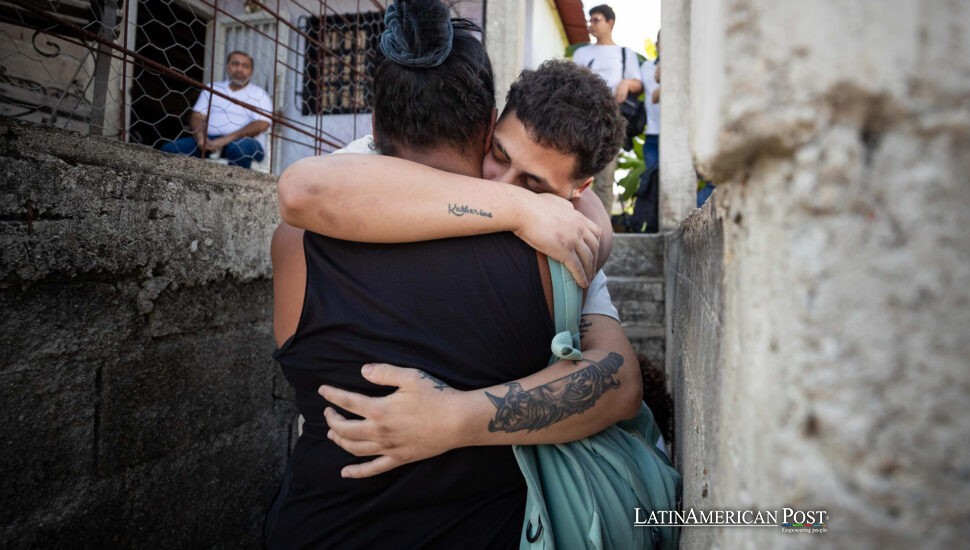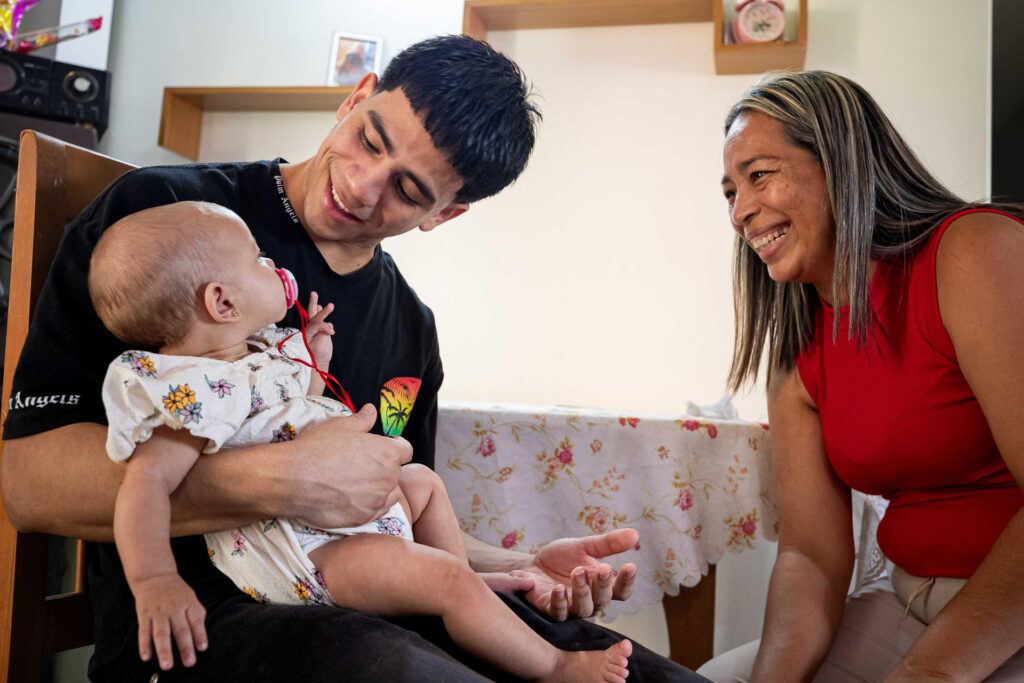Venezuelan Rappers Escape El Salvador’s Hell and Turn Their Trauma into Music

Handcuffed, heads shaved, and chained at the waist, Ángel Blanco and Joen Suárez were thrown into one of Latin America’s most feared prisons. Four months later, they’re free—and rapping their way out of the silence.
From a Microphone in Queens to a Cellblock in El Salvador
When Ángel Blanco, 22, left Venezuela in 2022, he didn’t imagine his dream would end behind bars. He just knew that if he wanted a shot in the music industry, he had to leave. So he crossed the Darién Gap, rode La Bestia through Mexico, and made it to Queens, New York, where his friend Joen Suárez, 23, had already set up a makeshift studio and was working side jobs to support his newborn daughter.
Their lives were precarious, but they were building something. Then came March 15. At a gas station in Queens, ICE officers arrested the pair. Within days, they were shuffled from Pennsylvania to Texas, and finally onto a plane they believed was taking them back to Caracas.
Instead, when the cabin doors opened, they were in El Salvador, greeted by riot police in helmets, ready to receive prisoners allegedly tied to Venezuela’s feared Tren de Aragua cartel. There were no charges. No hearing. No way out.
“El sueño americano terminó en pesadilla,” Suárez told EFE. “The American dream ended in a nightmare.”
Writing ‘Cecot’ With Soap and Memory
Once inside Cecot—El Salvador’s infamous Centro de Confinamiento del Terrorismo, a 40,000-capacity mega-prison built by President Nayib Bukele—the men were shaved, beaten, and thrown into a sweltering cell crammed with more than fifty other detainees.
“We slept in shifts,” Suárez said. “If one person stood, another could lie down.”
It was there, amid rubber pellets and chains, that they began to write. With a sliver of soap, they scratched lyrics into their bunks, birthing “Cecot“—a raw, searing piece about confinement, abuse, and survival.
“They want to kill us, locked in a cage like animals,” Blanco raps now, back in his father’s modest living room outside Caracas, voice trembling on the beat. Scars from metal cuffs still mark his wrists. His eyes dart to the door each time someone walks by. “I’m not the same,” he admits. “But I’m free.”
Their song doesn’t just tell a story—it’s a warning and a testimony. The music remembers what the system tried to erase.
Surviving a Prison Built for Terrorists
Though they never faced criminal charges, the U.S. had labeled the men as affiliates of Tren de Aragua—a designation both they and Venezuela’s government deny. El Salvador agreed to house them under a secretive deportation pact, one that’s since drawn condemnation from human rights groups, who call it “collective punishment.”
Inside Cecot, Blanco and Suárez clung to sanity through rhythm and scripture. Officers allowed inmates to carry Bibles, which became spiritual lifelines. “We’d swap verses for strength,” Suárez recalled. “And every day we repeated to each other: ‘Mind strong, heart strong.’”
After a weeklong hunger protest, beatings eased slightly. But they never stopped. Inmates who demanded due process sparked a riot, triggering another crackdown.
Then came June 18. Without notice, the two were told they were going home—part of a U.S.–Venezuela prisoner exchange that freed ten detained Americans in return. Blanco remembers boarding the plane still handcuffed, unsure if he’d ever see his family again.

Rhymes From the Graveyard
Stepping off the plane in Caracas felt like “resurrecting,” Blanco told EFE. “We walked out of the cemetery of the living.”
Their hometown of Cúa welcomed them with tears and a homemade cake. Suárez reunited with his partner and baby daughter, deported earlier without his knowledge. The embrace from his mother, he said, was the one he’d waited for most.
Now back home, they record with basic equipment, laying tracks they wrote in captivity. They’re not trying to forget what happened. They want to remember—loudly.
“We still want to perform in New York,” Suárez says. “But not like this. Not under this president.” A reference to Donald Trump, whose administration authorized the deportation deal.
For now, their message is local but carries weight well beyond Venezuela’s borders. Their story highlights a system where young artists chasing opportunity were branded criminals, detained without due process, and dropped into a prison known for unrelenting brutality.
“I lost my freedom,” Blanco says, “but I didn’t lose my words.”
As their first EP comes together—tentatively titled “Cecot“—the rappers know the sound will carry. They’ve lived what many only hear in headlines. Now they want the world to listen. To the beat, yes. But more importantly, to the story behind it.
Also Read: Colombia’s Underwater Graveyard: Divers, Spirits, and the Relentless Search for the Disappeared
Credits: Based on interviews conducted by EFE with Ángel Blanco and Joen Suárez in Cúa, Venezuela, and supplemental reporting from human rights advocates tracking U.S. deportation policy. Additional context from Salvadoran prison officials and community sources is available.





